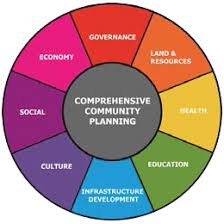Since the neo con ideological revolution swept across the world from the 1980s, we have witnessed a dramatic reduction in community development posts funded and employed by local government. At first the closure in local government funded community development programmes and posts was relatively slow and uneven, but certainly since the 2008 financial crash we have seen a significant closure in programmes, evidenced most recently by the savage cuts proposed by the Trump Administration in the USA.
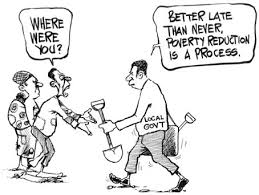
The rationale for this is that the neo cons, or to put more simply right wing politicians, have an ideological mission to reduce central and local government public expenditure upon social, environmental and local economic development programmes. Other than expenditure upon law and order ie the police and criminal justice services and upon the military, their view is that government should get out of the way and let the so called ‘market’ prevail. This they have argued will ‘liberate’ people to take self help actions to improve their communities and tackle such problems as poverty or ill health. Indeed they go on to argue that poverty and ill health is the direct consequence of the feckless behaviour of individuals and not due to structural inequality or systemic failure. It has had the added advantage of allowing them to significantly reduced progressive income and wealth taxes, which was their main driver anyway.
For forty years this ideology has been in the ascendancy in many developed and developing countries and indeed promulgated in part by global organisations such as the World Bank. At the 2016 IACD conference a Vice President of the World Bank when challenged by the then IACD President about this, responded that governments, at both central and local level were ‘part of the problem’ in many developing countries ‘because they were not democratic’ and because as a result international donor funds to such governments had ended up in the pockets of the local elites or dictatorships due to corruption and had been of little benefit to communities in most need. As a result they were now increasingly targeting their funds through non governmental organisations, the argument being that NGOs (or as some term them Aid or Development charities) are less corrupt and more transparent. There is some credibility in the World Bank Vice President’s concerns, but this is a different argument to the wider trend of the withdrawal of governments at central and local government from a responsibility to fund community development programmes.
At the very heart of the ethics of community development is a firm commitment to democracy building and to increasing the participation of the less powerful in the decisions that affect their lives. But also important, community development is about building and supporting sustainable democratic institutions and a key part of that is democratically elected local government. So while we do understand the World Bank’s apprehensions and experiences, we are against international programmes that might weaken democratic local governance and are strongly supportive of measures by international bodies for helping developing countries (or indeed developed countries) to build/rebuild sound democratically elected and accountable local government. And further that where such tiers of government do exist it is democratically elected local governments that should be encouraged and supported by international bodies and donors to play the lead role in shaping urban and rural development and community planning, in partnership with other stakeholders such as the private business sector and non governmental organisations, AND especially with the people who live and work in these areas.


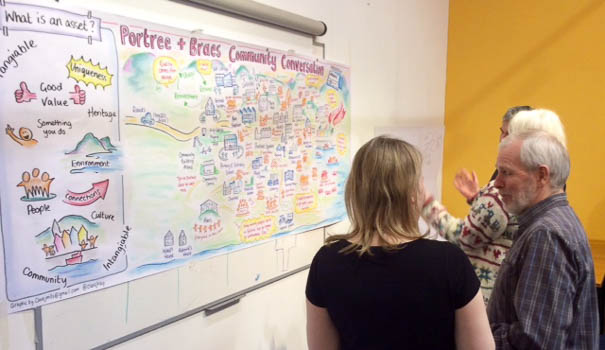
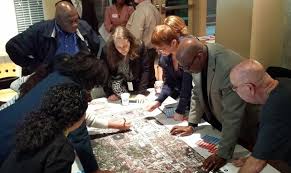
We should not, as community development practitioners and policy makers, assume that non governmental organisations are somehow more democratic and transparent than local government. Indeed most international or indeed local charities are run by boards that are far less accountable to local people and voters than a democratically elected local council. So, we are calling once again for a serious debate at international, national and local levels across our membership, about the role that local governments should be playing in community development.
Forty years ago, some IACD members played a role in shaping the Council of Europe’s 1989 Resolution on Community Development that called upon all member countries of the Council of Europe area (this encompasses all European countries within the EU and beyond such as Russia and Turkey), to support their local authorities to fund and play a pro active role in community development.
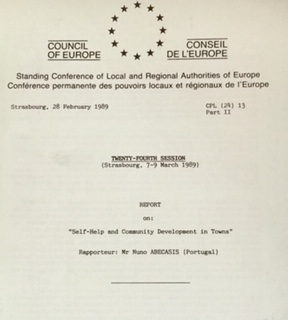
We repeated this call in 2004 through the Budapest Declaration approved at our conference in Hungary and similar calls were made at our conferences in Africa and Asia in the four years that followed.
From the earliest days of state funded and employed community development work, between the 1950s and 80s, in both the newly created post colonial countries in the global South and in the developed West, it was generally acknowledged that local government should be playing a pro active role. This was also the case across most Communist countries, although here there was still a strong fixation with top down planning. As a result thousands of community development workers (using a myriad of job titles) were directly employed by the local state or by NGOs funded by the local state.
Much of this is now a thing of the past, the direct result of the neo con ideological destruction of pro active local government and it should be added, a consequence of the lack of any statutory base requiring local authorities to do this. They did it in the three decades after WW2, because there was a stronger foundation of socialist and social democratic interventionist beliefs in many of these countries, and a belief that governments should intervene in planning and social and economic development and environmental protection. When the massive period of cuts began to occur from the 1980s and particularly after 2008, it was local government posts such as community development work that was cut first because there was little or no legal basis for that provision. The most recent attack on state funding for community development in the USA could well be realised by the Trump Administration, because these posts and programmes are much easier to cut for example than schools or teachers, where the legal foundation for provision is much stronger. This has certainly been the case in Western Europe, where although a belief in social democracy still hangs on, the legal foundation requiring local government to provide community development support is pretty weak. In the UK for example local government community development posts have almost disappeared.
So, we are calling for a debate across the association once more about the need for pro active/ democratic local government and its role as a player in community development. We are unsurprisingly calling upon local governments to fund community development programmes and posts. And of course for central governments to increase the powers and funds available for local governments to do this, and to underpin the importance of the provision of community development support with statute.
Strong, democratically elected, accountable, well organised and administered local government needs to be there in place if the UN’s Sustainable Development Goals agenda is to be realised. International bodies and national governments can do a great deal with the will and the investment, but it is at the municipal and local level that co-ordination between public, private, non governmental and others, including a strong voice around the table for local communities is vital. Community Planning, a well tried process involving agency co-ordination and community participation, orchestrated by the local council is critical. And as a part of that role, local councils must themselves have skilled community development expertise. A commitment to people participation in addressing these challenges is a start. But to turn rhetoric into reality needs staff skilled in community development employed by the partner agencies, including the local authority.

